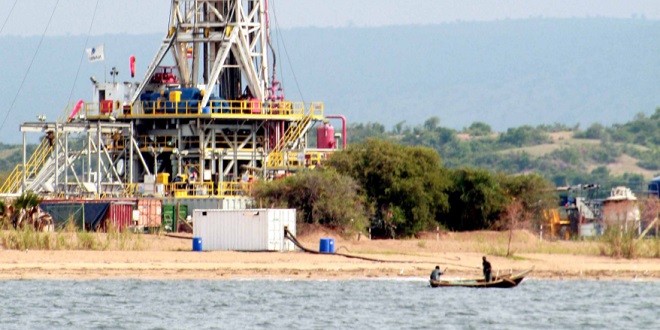
Kampala, Uganda | THE INDEPENDENT | The oil sector in 2019 was dotted with both sheds optimism and pessimism in equal measure.
The year started with government pledge for transparency in the sector when it signed up to the Extractive Industries Transparency Initiative (EITI), much to the delight of civil society that has been calling for this.
EITI ensures transparency through full publication and audit of company payments and government revenues from oil, gas and mining.
The Petroleum Fund Investment Advisory Committee (IAC), headed by banker Samuel Sejjaka, is a fulfilment of the requirement of the Public Finance Management Act 2015.
In the same month, on May 8, Uganda unveiled five oil blocks for competitive licensing for exploration and development. They are Avivi measuring about 1,268km2 in Arua: Omuka (750km2 in Nebbi): Kasuruban (1,285km2 between Buliisa and Packwach): Turaco (635km2 in Ntoroko District) and Ngaji measuring about 230km2 along the borders of Bushenyi, Rubirizi and Ntungamo.
The process has not been completed and government is still courting investors to apply for these licenses.
These events show that Uganda had a successful year for the oil and gas industry in terms of transparency and institutional framework, said Paul Bagabo, the director of the Natural Resource Governance Institute Uganda (NRGI).
This optimism is shared by the Permanent Secretary of Ministry of Energy Robert Kasande. He told URN that most of the studies that would lead up to the next phase of activities had been completed this year.
Yet when it looked like activity was building up in the sector, Dr Josephine Wapakabulo, the then CEO of the Uganda National Oil Company (UNOC) resigned in the same month. She said she was leaving to spend time with her family but also do personal business.
In June and July, the sector was majorly quiet but behind the scenes, there were fierce negotiations were on-going to complete the Tullow Oil sell of its interests to Total E&P and China National Offshore Oil Company (CNOOC).
Total CEO Patrick Pouyanné travelled to Kampala in June to meet with President Museveni. It didn’t bear a fruit.
In August, the major announcement in the sector was made – the Tullow Oil deal with Total E&P and CNOOC had collapsed, throwing the entire sector into uncertainty.
Oil companies announced they had failed to agree tax terms with the government and could not complete the deal where Tullow was selling its interests in the Albertine region to the other two.
This meant that the much-awaited Final Investment Decision (FID) that could have seen actual works on key projects like the oil pipeline, and the refinery.
Ali Ssekatawa, the Petroleum Authority of Uganda (PAU) director for legal and corporate affairs, said even with setbacks most projects were technically mature just awaiting the commercial and legal frameworks to take off. He said in 2019, they acquired 90% of the land required for the drilling in the kingfisher projects and finished feasibility study for the oil pipeline.
The collapse of the deal sparked off suspension of key activities in the sector in September, perhaps to show the depth of uncertainty that the sector had been thrown into.
Total suspended all the initial activities on the East African Oil Pipeline. It laid off some staff. This was the same case with CNOOC and Tullow. CNOOC has since closed its office in Hoima and suspended all community Social Responsibility (CSR) activities in the area.
Amidst this frenzy, UNOC got Proscovia Nabbanja as the new CEO. The 41-year-old had been a chief operating officer upstream at UNOC.
At the end of November, President Museveni again met Total E&P top executives at State House Entebbe. It is not yet clear what came out of their discussions but reports show that oil companies might back in negotiations with aim to reach agreement early 2020.
But perhaps to wrap what has been a tumultuous year for the industry, Irene Muloni, the minister who had overseen the sector since 2011, was last weekend dropped from her ministerial position.
Bagabo says the 2020 is likely to see setbacks because it is an election year. Parliamentarians, cabinet, and the president himself will likely be engaged in courting voters.
Nonetheless, he said, the FID will likely be reached but also oil companies will come to terms again over the Tullow sell of interests to other players.
******
URN
 The Independent Uganda: You get the Truth we Pay the Price
The Independent Uganda: You get the Truth we Pay the Price



